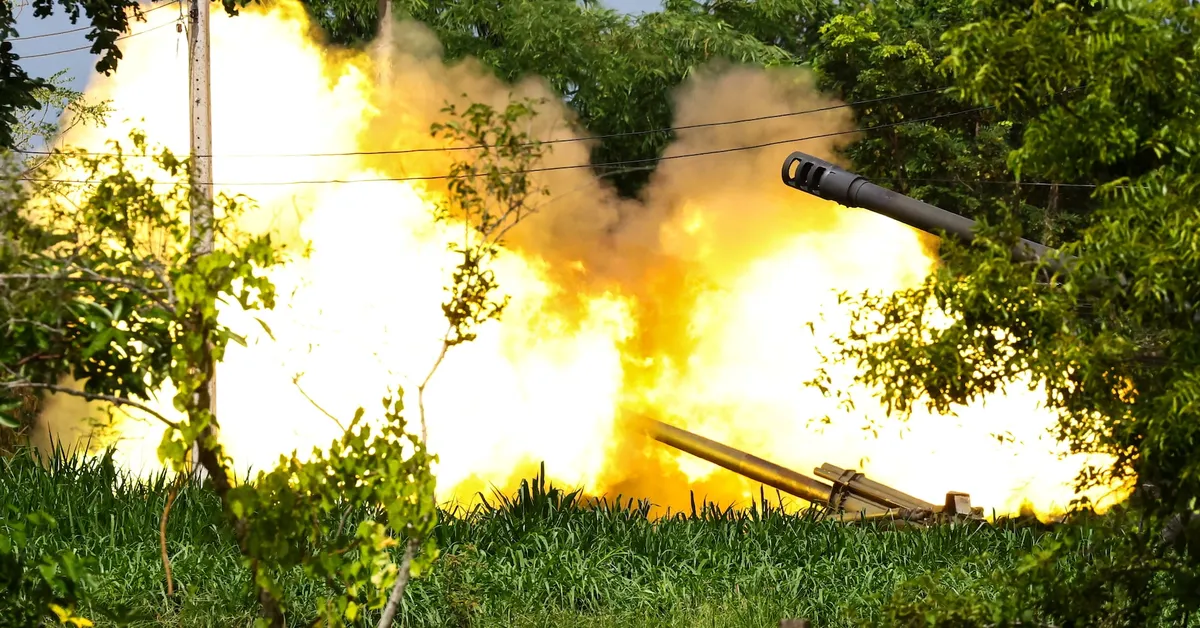
On July 25, 2023, a severe escalation in the ongoing border conflict between Thailand and Cambodia led to heavy artillery exchanges, marking the most intense fighting between the two nations in over a decade. This conflict, which has claimed at least 16 lives, shows no signs of abating despite urgent calls for an immediate ceasefire from regional leaders and international bodies.
According to reports from the Thai military, clashes began before dawn, particularly in the provinces of Ubon Ratchathani and Surin. The Cambodian forces have been utilizing artillery and Russian-made BM-21 rocket systems, prompting Thai forces to respond with tactical supporting fire. The situation on the ground has led to the evacuation of approximately 100,000 people from conflict zones within Thailand.
The fighting escalated rapidly, transitioning from minor skirmishes involving small arms to extensive shelling across at least six locations, which are spread 209 kilometers (130 miles) apart along a border that has been contested for over a century. Journalists in Surin province reported hearing intermittent explosions, indicating the intensity of the conflict.
A significant military presence was noted on the Thai side, with a convoy of armored vehicles, tanks, and trucks moving towards the border, emphasizing the readiness of the Thai army to respond to any further aggression. This surge in military activity follows the recall of Thailand's ambassador to Phnom Penh and the expulsion of Cambodia's envoy, triggered by a recent incident where a Thai soldier lost a limb to a landmine, which Thailand alleges was laid by Cambodian troops.
As of early Friday, the death toll in Thailand rose to 15, with 14 of those being civilians. Additionally, the health ministry reported that 46 individuals had sustained injuries, including 15 soldiers. Cambodia has not disclosed details regarding casualties or civilian evacuations, though a provincial spokesperson mentioned one civilian death and five injuries in Oddar Meanchey province, alongside the evacuation of 1,500 families.
In a rare combat deployment, Thailand positioned six F-16 fighter jets, one of which was reportedly used to target Cambodian military installations. This show of military strength highlights Thailand's advantage over Cambodia, which lacks fighter aircraft and has significantly fewer defense resources. The United States, a long-standing ally of Thailand, has called for an immediate cessation of hostilities and the protection of civilians.
Malaysian Prime Minister Anwar Ibrahim, who currently chairs the Association of Southeast Asian Nations (ASEAN), has urged both nations to pursue a peaceful resolution. In a social media post, he expressed optimism about the willingness of both Bangkok and Phnom Penh to seek a diplomatic path forward and offered Malaysia's assistance in facilitating peace talks.
The situation along the Thailand-Cambodia border remains critical as both sides exchange heavy fire, leading to civilian evacuations and international concern. With mounting casualties and the potential for further escalation, the call for a ceasefire grows increasingly urgent. The international community continues to advocate for peace and stability in the region.